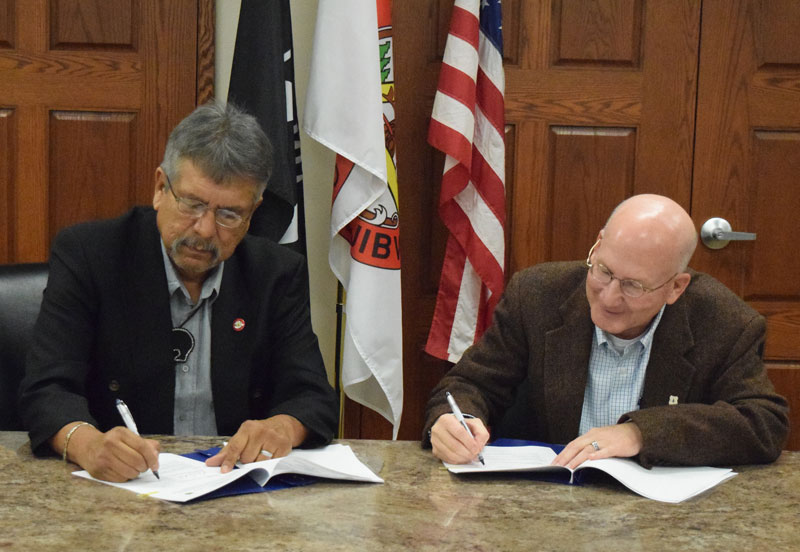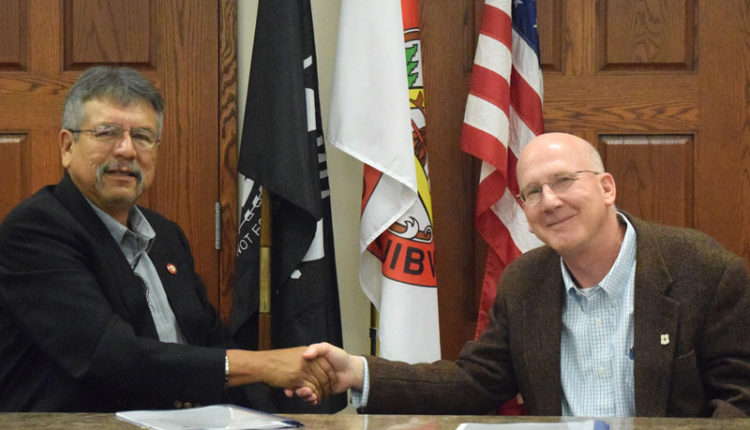Cass Lake, MN– Chairman Faron Jackson of the Leech Lake Band of Ojibwe and Bob Lueckel, Acting Regional Forester of the US Forest Service signed a Memorandum of Understanding (MOU) today, which outlines the relationship between the two entities. The MOU provides a framework for consultation and collaboration between both the Band and the Forest Service.
The U.S. Forest Service’s Chippewa National Forest shares a significant geographical area with the Leech Lake Indian Reservation. The MOU acknowledges the unique history of the Chippewa National Forest, which was originally set aside and preserved for the use and benefit of the Ojibwe people and the general public. The MOU addresses consultation, communication and establishes a shared decision-making model, in accordance with federal laws.
“We feel that this is a big step in the right direction,” said Chairman Faron Jackson. “This MOU provides a solid foundation for continuing a mutually beneficial relationship between the Forest Service and the Leech Lake Band.”

A continued stated goal of the Leech Lake Band is to obtain shared-decision making in forest management, which is currently not allowed by federal law. The Band also seeks to receive a portion of the Forest’s timber receipts. “We will be working to address these broader issues with our representatives in Congress as the next step in developing this in-depth relationship,” continued Chairman Jackson. “However, we are pleased with this document as it is, and look forward to continuing our positive relationship with the Forest Service.”
The foundation of the MOU is the government-to-government relationship between the Leech Lake Band, a federally-recognized Indian tribe, and the federal government. Utilizing this relationship as a foundation, the MOU addresses both the history and the development of the Reservation and the Forest, and moves both the Band and the Forest Service closer to the joint goal of becoming full partners in the conservation of the shared territory.
“We will work together to identify shared priorities and implement shared projects focused on forest and watershed restoration, fish and wildlife habitat improvement and preserve socially and culturally significant places,” Lueckel said. “The overlap of boundaries and jurisdiction provides us with an opportunity to implement shared stewardship practices and enhance our partnership with the Band.”
“The challenges we face today, such as wildfire and invasive species, go beyond the shared forest and Reservation boundaries and effect people beyond the jurisdiction of any single agency or organization,” Lueckel continued. “This necessitates working closely together to find new ways of doing business at a greater pace and scale for the greatest benefits to resources and people.”


